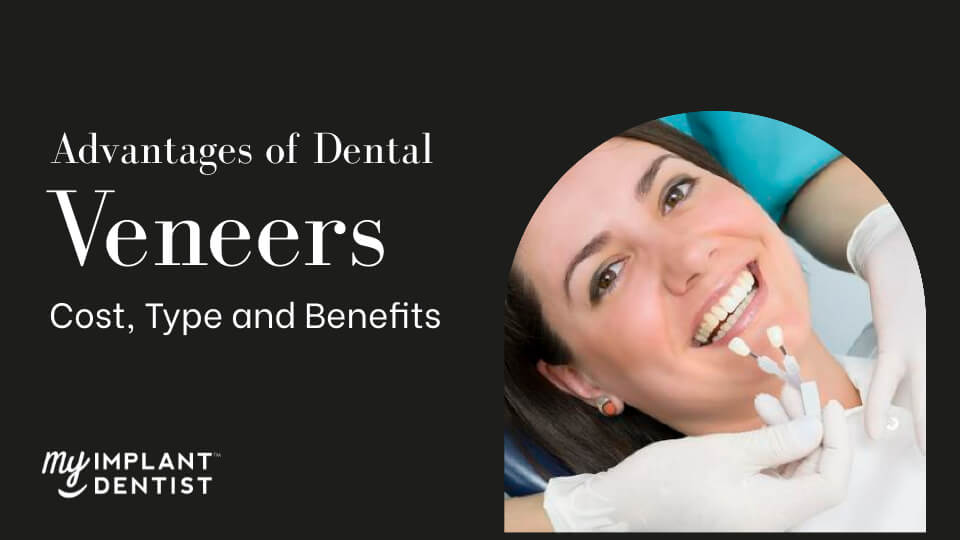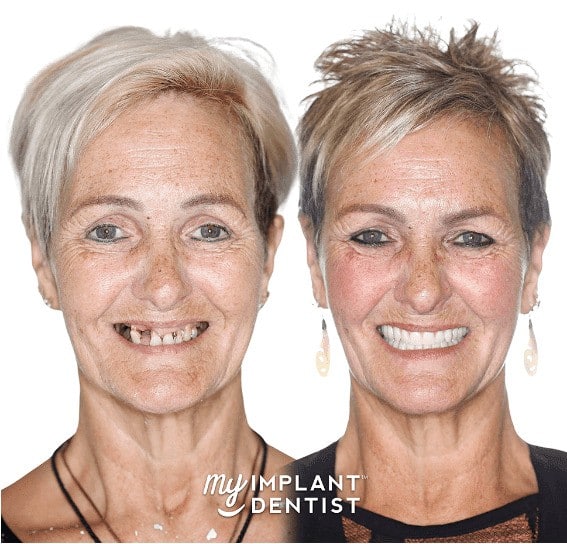
Contents
- 1 Veneers Cost in Perth
- 2 What Are Veneers?
- 3 How Do Dental Veneers Work?
- 4 Cost of Dental Veneers Perth
- 5 What Are the Types of Veneers?
- 6 Six Benefits of Dental Veneers
- 6.1 1. They give the teeth a natural look
- 6.2 2. Dental veneers can cover chips, cracks, and discolouration
- 6.3 3. They are worth the investment
- 6.4 4. Dental veneers are durable and require little maintenance
- 6.5 5. They are perfect for correcting various teeth disfigurement
- 6.6 6. Dental veneers require little enamel removal
- 7 What Can You Get Instead Of Veneers?
- 8 How To Prepare For Your Appointment
- 9 Are Dental Veneers Right For You?
- 10 What Don’t They Tell You About Veneers?
- 11 Choosing the Right Dentist for Veneers
Veneers Cost in Perth
Curious about getting veneers in Perth? Whether you’re considering single or multiple veneers, understanding the average cost and exploring payment plans can make achieving your dream smile more accessible. One of the most common questions among individuals considering veneers is about the cost.
In this blog post, you will learn essential information about this cosmetic dentistry treatment so that you can decide whether or not it is worth your time and money.
What Are Veneers?
Dental veneers are thin, tooth-coloured shells used to improve teeth’ appearance. They’re usually made of porcelain or resin composite materials and permanently bonded to your teeth.
Veneers can be used to correct various cosmetic issues, including chipped, broken, discoloured, or undersized teeth.
Some people only require one veneer when a tooth is broken or chipped, but most people need six to eight veneers to achieve an even, symmetrical smile. The upper front eight teeth are the most commonly treated with veneers.
Veneers do not entirely replace your teeth; instead, they cover the visible surfaces of your teeth. This means that dental veneers are only used for cosmetic purposes in your area.
Veneers are custom-made, thin shells of tooth-coloured materials, typically porcelain or composite resin, designed to cover the front surface of teeth. They are used to enhance the appearance of teeth by improving their colour, shape, size, or length. Veneers are bonded to the front of the teeth, providing a natural and improved look to your smile.
How Do Dental Veneers Work?
The most significant benefit to veneers is improving the appearance of your teeth, giving you a brighter and more even smile. Dental veneers are used to correct a variety of cosmetic flaws in your smile, including but not limited to the following conditions:
- Crooked teeth
- Discoloured teeth
- Worn out teeth
- Crooked teeth
- Gaps in the teeth
Depending on the type you choose, dental veneers can last for a decade or longer, making them a semi-permanent investment that can improve your self-confidence by improving the appearance of your smile.
Dental veneers work by covering up imperfections in your teeth. They’re custom-made to fit your teeth and are bonded to the front surface for a seamless look. The veneer process typically involves three stages: diagnosis and treatment planning, preparation, and bonding.
During the diagnosis and treatment planning stage, your dentist will examine your teeth to make sure dental veneers are appropriate for you. The preparation stage involves removing about 0.5 millimetres of enamel from your tooth surface, roughly equal to the thickness of the veneer to be added. Finally, the veneer is bonded to your tooth using a special cement, which is then hardened with a special light beam.
Cost of Dental Veneers Perth
The cost of veneers in Perth can vary depending on the type of veneer, the number of veneers you need, and the dentist you choose. On average, composite resin veneers cost around $400 per tooth, whereas other material such as acrylic or full porcelain veneers can range from $1,000 to $2,500 per tooth.
| Veneer Type | Approximate Cost Per Tooth |
|---|---|
| Porcelain Veneers | $1,000 – 2,500 |
| Composite Veneers | $400 |
How much does a set of veneers cost? A variety of factors influence the price of set of veneers in Perth, WA. You can use your dental insurance if you don’t have enough money to pay for the procedure.
As a result, many dental insurance plans will cover a portion of the procedure, allowing you to save money overall on your dental treatment.
Here Are Factors That Influence Price Of Dental Veneers in Perth:
Several factors can influence the cost of veneers:
- Type of porcelain veneer used: A variety of different types of dental porcelain are available for the dentist to use in the creation of these veneers, which are available in various colours. Each type has advantages and disadvantages, and the needs of the patient will determine the type that the dentist chooses. More often than not, investing in a more expensive material will save money in the long run than choosing a less expensive material that will not last as long.
- Choosing a Dentist: The cost of these veneers is also determined by the dentist that you select. The cost of a dentist will increase in direct proportion to how credible and sought-after they are. It is recommended that you choose a reputable dentist who can significantly improve your smile.
- Location: The physical location of the dental clinic is also important to consider. Compared to a rural or suburban setting, the cost of living in a major city will be higher.
- Number of Veneers: It should go without saying that you will have to pay more money if you choose to have more veneers. On the other hand, if you base your decision on the cost of purchasing a single veneer will likely single veneer will be more expensive than purchasing several veneers at the same time. Additionally, single veneers are more costly than multiple veneers because the cost of producing them is higher than the cost of producing multiple veneers.
- Treatments complementary to porcelain veneers: It is extremely rare for patients who want porcelain veneers not also to have other procedures done. In addition to not being able to be stained, porcelain veneers also cannot be whitened. As a result, it is critical to choose a colour you are comfortable with. Many people choose to have their teeth professionally whitened before having veneers placed on their teeth to ensure the best possible results. When it comes to gum tissue removal, it may be necessary in some cases, which will increase the overall cost of the procedure by a significant amount.
What Are the Types of Veneers?
There are four types of dental veneers, including:
-
- Porcelain veneers – are stain-resistant, durable, and strong. Porcelain veneers can be closely matched to the colour of your teeth, giving you a stunning smile. These veneers can last up to 16 years if properly cared for, and they are a permanent cosmetic treatment.
Porcelain veneers are a fantastic way to improve your self-esteem and transform your smile. But they can be pretty costly. This is why many dental patients are not sure if affordable dental veneers in Perth are worth spending on.
-
- Dental veneers – made of ultra-thin laminate porcelain are known as Lumineers. They are reversible and require minimal tooth enamel removal before placement; however, they have a shorter lifespan than Dental veneers.
-
- Composite veneers – resemble natural veneers, but they are more likely to stain and discolour over time. The strength of porcelain veneers is inferior, but they are less expensive and can last for several years before they require adjustment or replacement. Composite veneers are also a long-term solution.
-
- Temporary veneers – are the only removable veneers available, and they do not appear as natural as the other options. They’re also more prone to bacteria buildup, which can damage your gum tissue over time.
Six Benefits of Dental Veneers
Investing in veneers offers numerous benefits, including:
1. They give the teeth a natural look
Denta veneers are so comfortable and balanced that people will have no idea you’ve had cosmetic work done. They are made to fit your mouth perfectly and feel completely natural. With natural-looking veneers, you are boosting your confidence in your smile. Dental veneers can help you achieve that smile you’ve been wanting.
2. Dental veneers can cover chips, cracks, and discolouration
It’s common to use a bonding procedure to fix minor flaws in your teeth, such as gaps, chips, or cracks. This entails applying a tooth-coloured resin to the affected area to repair it and give it a flawless appearance. On the other hand, dental veneers can achieve the same result and will last far longer than bonding. Porcelain veneers are more durable than resin veneers, and they do not require touch-ups or adjustments over time.
3. They are worth the investment
Dental veneers can last up to 15 years if maintained well. They do not require frequent visits to your dentists for changes. They would need to be replaced after this period. Veneers are a significant investment, so ensure you have all the necessary information before proceeding.
4. Dental veneers are durable and require little maintenance
Veneers do not require high maintenance. However, to keep your mouth healthy, you’ll still need to brush twice a day and floss once a day even though your veneers are stain-resistant.
Make an appointment with your dentist for regular dental checkups. This simple procedure will keep your veneers pearly white, allowing you to enjoy a beautiful, healthy smile.
5. They are perfect for correcting various teeth disfigurement
Dental veneers made of porcelain can correct minor cosmetic flaws that are visible when you smile or speak. Your dentist will be able to tell you if you’re a good candidate for dental veneers during a consultation. For example, if you have a minor gap that makes you feel uncomfortable between your front teeth, your dentist may recommend that you get veneers for your teeth to close the gap.
The use of a dental crown to strengthen and improve the appearance of a weak or damaged tooth is recommended by your dentist if the tooth is weak or damaged. Your local dentist will be able to find the best solution for your smile in either case.
6. Dental veneers require little enamel removal
One of the advantages of dental veneers over other types of procedures is that they do not require the removal of your natural teeth. Adhering to the front of your teeth only need a small amount of enamel removal. That’s significant because your teeth are vulnerable to sensitivity and decay without enamel. Crowns and bridges, on the other hand, cover the entirety of one or more teeth, so you’ll have to lose a lot more of your natural teeth to get them.
What Can You Get Instead Of Veneers?
Alternatives to Dental Veneers
Bonding
Bonding may be recommended for patients who have insufficient dental enamel or do not want to change the structure of their teeth permanently. A composite resin is applied to the front of one or more teeth during the bonding procedure. The amount of composite resin applied will depend on the situation. The resin can be customised in shade, sculpting, and polishing, making it nearly indistinguishable from natural enamel.
Teeth Whitening
Instead of veneers, patients who only want to improve the colour of their smiles can opt for teeth whitening. If you’re going to avoid veneers, bleaching your teeth under the supervision of a dentist is a quick and inexpensive alternative. It’s also appropriate for a variety of patients. Teeth whitening treatments, both in-office and at home, can lighten teeth by up to eight shades by chemically breaking apart stained molecules that have been deposited in the enamel.
Dental Crowns
Dental crowns are similar to veneers in some ways. These porcelain caps are custom-made to match a patient’s natural smile and completely cover the tooth down to the gumline. Your dentist will likely need to remove a significant amount of tooth structure from the affected tooth for a crown to fit properly. The use of crowns is a great option for patients who have suffered significant damage to a single tooth’s strength or structural integrity. On the other hand, Veneers are an effective and less invasive option for patients seeking primarily dental cosmetic enhancements.
How To Prepare For Your Appointment
Before placing your veneers, your dentist will consult with you to determine which options are best for you and how many veneers you require. Your dentist may recommend braces before placing the veneers on your teeth if your teeth are crooked or uneven.
It is likely that your dentist will use this time to take X-rays of your teeth to determine your teeth’ overall health. They’ll check your teeth for signs of decay, gum disease, or the need for root canal treatment before recommending treatment. Any of the conditions listed above may preclude you from being a good candidate for dental veneers.
A half-millimetre of your tooth is removed (by using a grinding tool) before your dentist takes an impression (mould) of your teeth. This allows your dentist to get accurate sizing for your veneers at the next appointment scheduled for the following day. Once the teeth mould has been created, it is sent to the lab, where your veneers are created.
You’ll go back to your dentist for the fitting once the veneers are ready. It’s a quick and easy process, and you can schedule appointments whenever you want.
Are Dental Veneers Right For You?
An important aspect of dental care is cosmetic dentistry, particularly dental veneers, which has quickly gained popularity.
Few dental treatments provide instant results, and good things take time. An extra five to seven days is well worth the wait if you’ve been living with flaws in your smile. If you choose porcelain veneers, you will need two or three visits to your dentist to complete the procedure.
At My Implant Dentist, the dentist will remove a small portion of your enamel during your first visit to make room for the dental veneers. The dentist will then take an impression of your bite, which will be sent to a laboratory where it will be transformed into porcelain veneers.
What Don’t They Tell You About Veneers?
Many people believe that porcelain veneers will stain and become unsightly quickly, but this is not the case. Porcelain veneers have a high stain resistance. While your teeth have pores that allow stains to penetrate, veneers do not have pores and therefore do not allow staining molecules to penetrate the veneer.
Choosing the Right Dentist for Veneers
When considering veneers, it’s essential to choose a reputable cosmetic dentist with experience in performing veneer procedures. Look for a dental practice that prioritises patient comfort, uses high-quality materials, and offers personalised treatment plans tailored to your unique needs and goals.
Schedule Your Consultation Today!
Ready to transform your smile with veneers? Schedule a consultation with a trusted cosmetic dentist in Perth to discuss your options and receive a personalised treatment plan. With veneers, you can achieve the radiant, confident smile you’ve always wanted and enjoy a newfound sense of self-assurance and happiness.





















